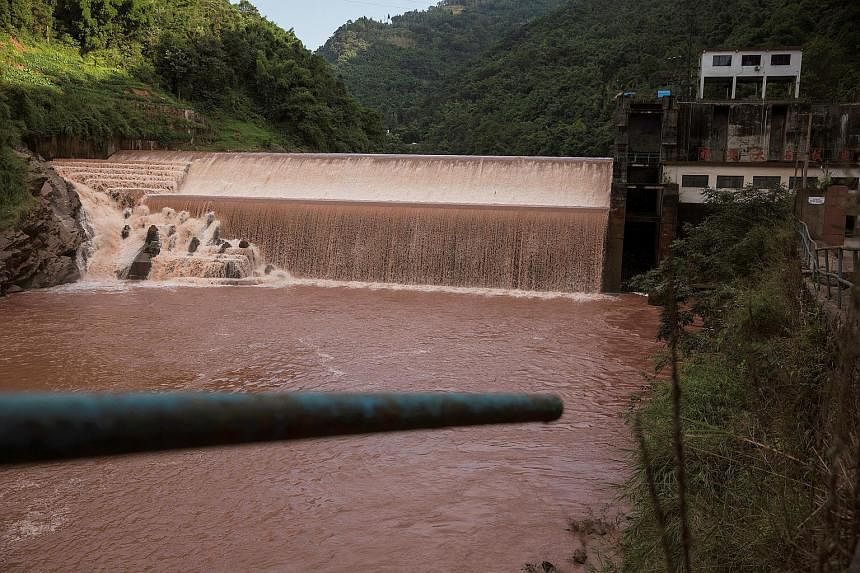BEIJING/SINGAPORE (REUTERS) - Producers of lithium, fertilisers and other metals shut plants or curbed output in China's southwestern Sichuan province on Monday (Aug 15) after it rationed industrial electricity consumption amid its worst heatwave in 60 years.
Industrial users across 19 out of 21 cities in the province were ordered to suspend production from Monday until Aug 20 to prioritise residential power supply, according to a notice issued on Sunday by the Department of Economy and Information Technology of Sichuan.
An official at the department confirmed to Reuters it had implemented power rationing but declined to discuss details.
There have been some power curbs in place since late July that affected industry production, however, the latest policy was more severe, according to industry sources.
Sichuan relies on dams to generate more than 80 per cent of its electricity.
But soaring temperatures and little rain this summer have reduced hydropower generation in the province of 83.75 million, while also boosting power demand for air conditioning.
Several cities will see temperatures of 42 degrees Celsius this week, said the China Meteorological Administration, which has issued a high-temperature alert for four consecutive days since Aug 11.
The move by a province that produces about half the country's lithium, used in electric vehicle batteries, is expected to push up prices of the metal that surged this year.
Top Chinese producer Tianqi Lithium and Sichuan Yahua Industrial Group both operate plants in the province. Tianqi did not respond to a request for comment on the curbs, and Yahua could not immediately be reached.
One major producer of the metal has halted production, analysts at Daiwa Capital Markets said in a note, without identifying the firm.
"This will definitely give a boost to lithium prices especially when the dynamics of EV (electric vehicle) sales in China look promising during the remainder of this year," said Ms Susan Zou, analyst at Rystad Energy.
"In addition, since the high temperature in Sichuan province is not easing significantly next week, the supply chain is also wary of extended power restriction in the region."
Aluminium producer Henan Zhongfu Industrial, chemicals maker Sichuan Guoguang Agrochemical, and fertiliser producers Sichuan Meifeng Chemical Industry and Sichuan Lutianhua also said in stock exchange statements they were suspending production this week.
Several electronics manufacturers also have production sites in Sichuan, including Taiwan's Foxconn. A company spokesman declined to confirm the status of its operations but said "at present, the impact is not big".
Some companies are continuing to operate at limited capacity however.
A major ferro-alloy producer in the centre of Sichuan has cut its daily output to 150 tonnes from Monday from a normal rate of 400 tonnes, said a source at the company.
Zhongfu said it would suspend part of its production at two units, Guangyuan Linfeng and Guangyuan Zhongfu, in northeastern Sichuan from Aug 14, reducing electrolytic aluminium production by 12,900 tonnes.
Metal producers typically raise their output in Sichuan during the rainy season that occurs from May to October when hydropower generation increases.
This year, hydropower output surged in the first half of the year but has waned since July.
"Hydropower was performing extremely well since March and forced coal power to cut output. But when it came to the summer, the hydropower suddenly ran out and is causing problems," said Ms Lara Dong, analyst at S&P Global Market Intelligence.
Sichuan's hydropower is also a significant source of electricity supply to coastal provinces such as Zhejiang and Jiangsu, after China invested billions of dollars in power transmission lines to send clean energy from its west to heavily populated eastern regions.
Zhejiang, Jiangsu and Anhui provinces have also recently issued power curbs for industrial users to prioritise residential usage, according to official statements and media reports.

